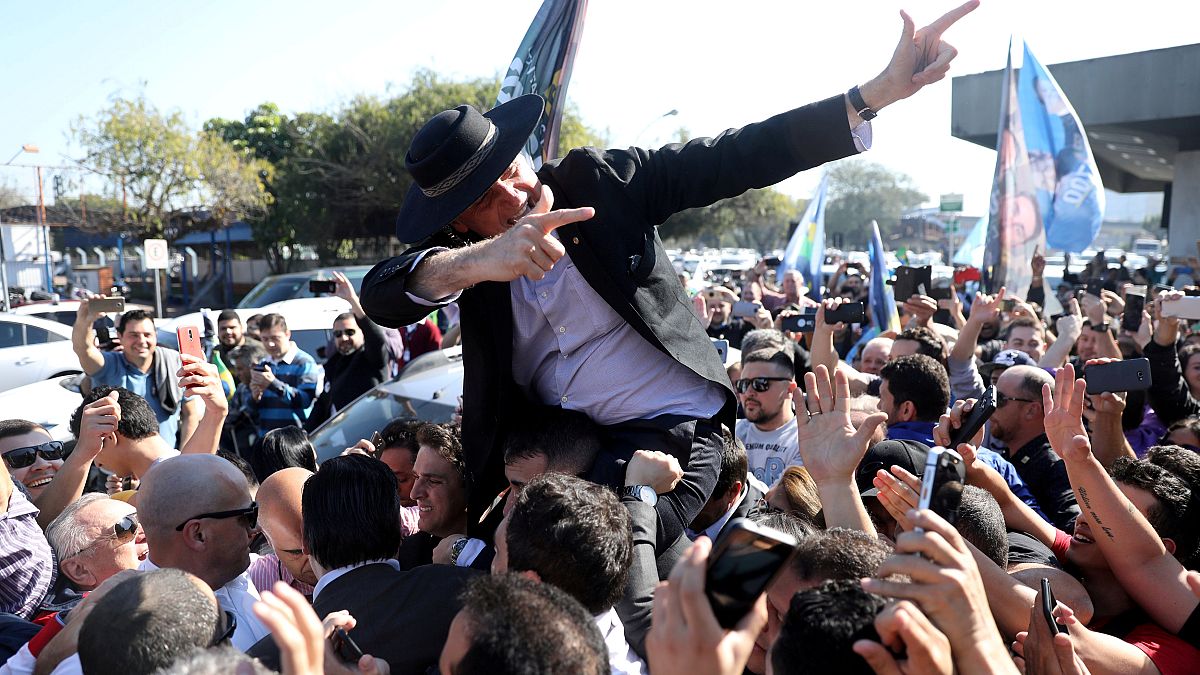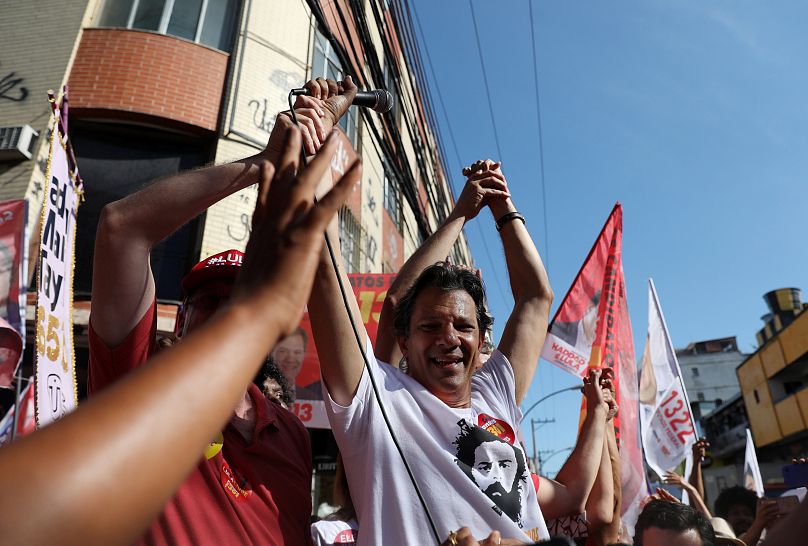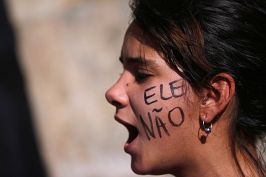A tough stance on crime and a low corruption profile give Jair Bolsonaro, Brazil's far-right candidate a real chance at winning the upcoming elections.
Brazilians will go to polls on Sunday in one of the most unpredictable elections since the end of the military dictatorship 33 years ago. With former Brazilian president, Luiz Inacio Lula da Silva, barred from running and far-right candidate for the Social Liberal Party, Jair Bolsonaro, as the favourite to win the elections according to recent polls, South America's largest country could be experiencing a 180-degree political turn.
The advance of the "Trump of Brazil"
A former army officer and far-right federal congressman, Bolsonaro is a controversial figure in Brazilian politics. He's been compared to US President Donald Trump for his divisive comments.
Bolsonaro is also known for his pro-arms stance, defending the death penalty, opposing abortion, and voicing admiration for the days of the Brazilian military dictatorship from 1964 to 1985.
According to a study by Brazil's Institute of Public Opinion and Statistics (IBOPE), Bolsonaro's rise in the polls comes mainly from the general discontent with corruption in politics and rising crime levels.
In 2017, Brazil broke its own record number of murders with 63,880 homicides, according to Brazilian think tank, Brazilian Forum of Public Security.
The far-right candidate has promised a tougher stance on crime and a plan to ease gun control, vowing to "hit this area hard" in a pre-recorded webcast.
Additionally, he's gained the support of powerful groups in Brazil. Business elites warmed up to the candidate for his embrace of free markets.
Bolsonaro also secured the backing of Brazil's wealthy farm lobby, which represents the country's agribusiness sector, for opposition to protection policies for the environment and native lands.
However, his comments — considered sexist, misogynist, and homophobic — have also repelled others.
He suffered a knife attack last month by an assailant at a campaign rally. He was discharged from Sao Paulo's Albert Einstein hospital a week ago and has flown back to Rio de Janeiro.
But despite his divisive comments, Bolsonaro’s popularity doesn’t seem to stop growing. He has a devout following among conservative voters that give him a very good chance at winning the elections, Roberto Romano, a political scientist at the Universidad Estatal de Campinas, told Euronews.
"Bolsonaro's chances at winning are real. They are based on broad sectors of Brazilian society that were nurtured by the conservative culture of the 1964 dictatorship. These sectors learned to be disgusted with modern democratic standards, human rights, women's rights, and minorities," he said.
The fall of Lula's party
Before Bolsonaro's rise to the top, Lula was leading in the polls as candidate for his Worker's Party (PT). However, the former Brazilian president was barred from the elections after he received a prison sentence of 12 years for corruption and money laundering.
His replacement as PT candidate, Fernando Haddad, is the former mayor of Sao Paulo and an academic believed to be disconnected from the working classes that brought Lula to power in 2003. As a result, he's stayed behind Bolsonaro in second place since he took over the candidacy a little less than a month ago.
“He can obtain a big part of Lula’s votes but not all of them,” said Romano. “There’s a big chunk of undecided voters who are hesitating between the PT and Bolsonaro.”
Lula's replacement has promised to make "Brazil happy again" and bring back the social programmes that made working-class Brazilians' standard of living rise sharply.
But after ruling Brazil for 13 of the last 15 years, the PT is blamed for the country's recession, the crime and violence problem, and the rising corruption within the political system.
Political Science professor at the University of Brasilia, Flavia Biroli, said one of the key things is the people’s rejection of Lula’s party.
“The criminalisation of Lula’s Workers Party resonates vastly in this election,” she said. “It didn’t favour the parties of the centre-right that were at the head of (former president) Dilma Rousseff’s impeachment but it did favour the emergence of one far-right candidate that has a big shot at winning.”
The latest poll from IBOPE indicates that Bolsonaro has maintained his lead over Haddad ahead of the weekend's election, with 27% of the likely vote. However, if none of the candidates wins a majority this first round, Bolsonaro and Haddad will probably face off in a second round on October 28. High abstention rates could boost the far-right leader's chances at winning this Sunday, according to local media.
Trailing behind them are candidates Ciro Gomes, Geraldo Alckmin, and Marina Silva who present themselves as being more centrist. However, none of them are likely to catch up to Bolsonaro or Haddad.
Movements against Bolsonaro
Bolsonaro’s divisive comments are not going unchallenged. Women-led groups in Brazil and abroad have organised protests against him under the slogan #EleNao (Not him).
“There’s a strong women-led movement against the far-right candidate currently in Brazil,” said Biroli. “The mixture of militarism, neglect of human rights and economic ultraliberalism is particularly damaging for women, especially women of colour and the poorest.”




